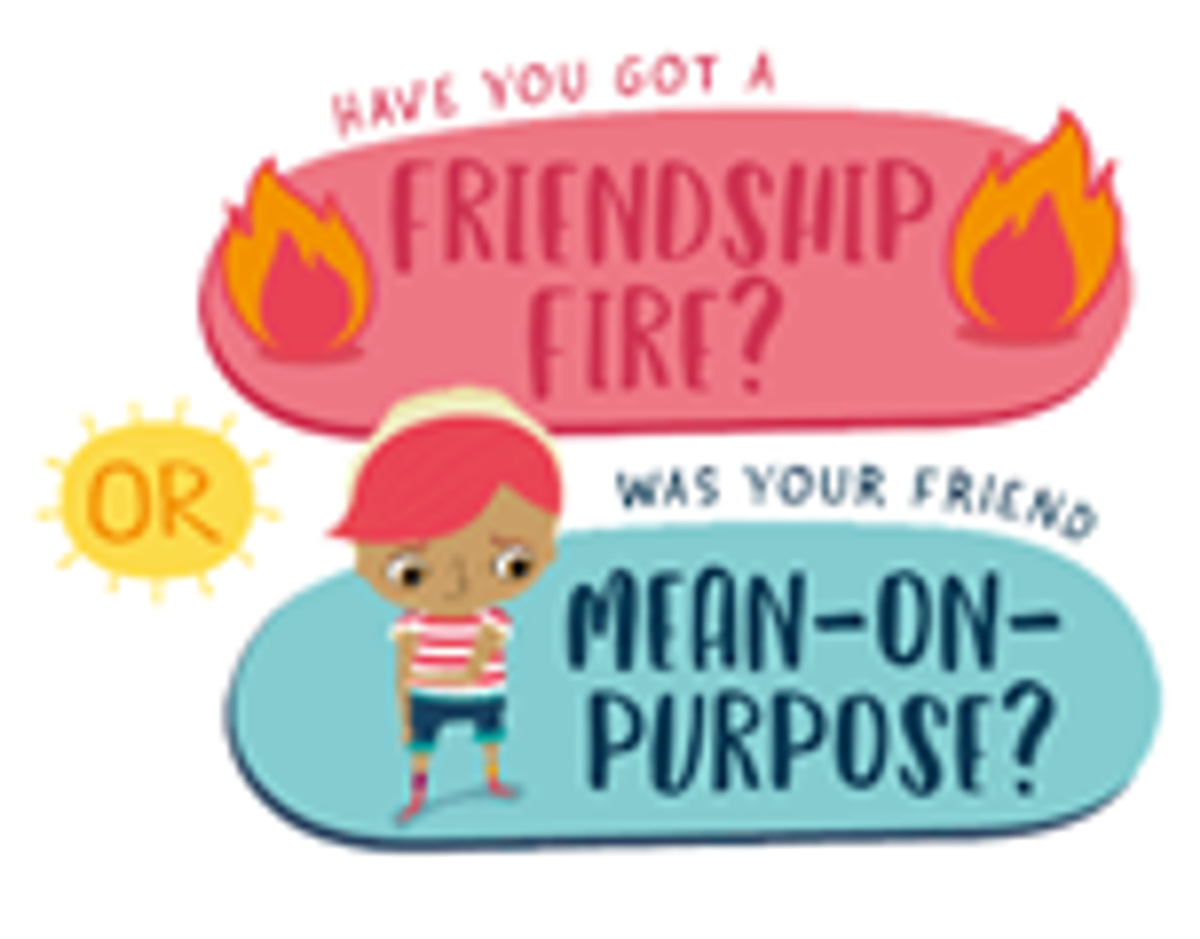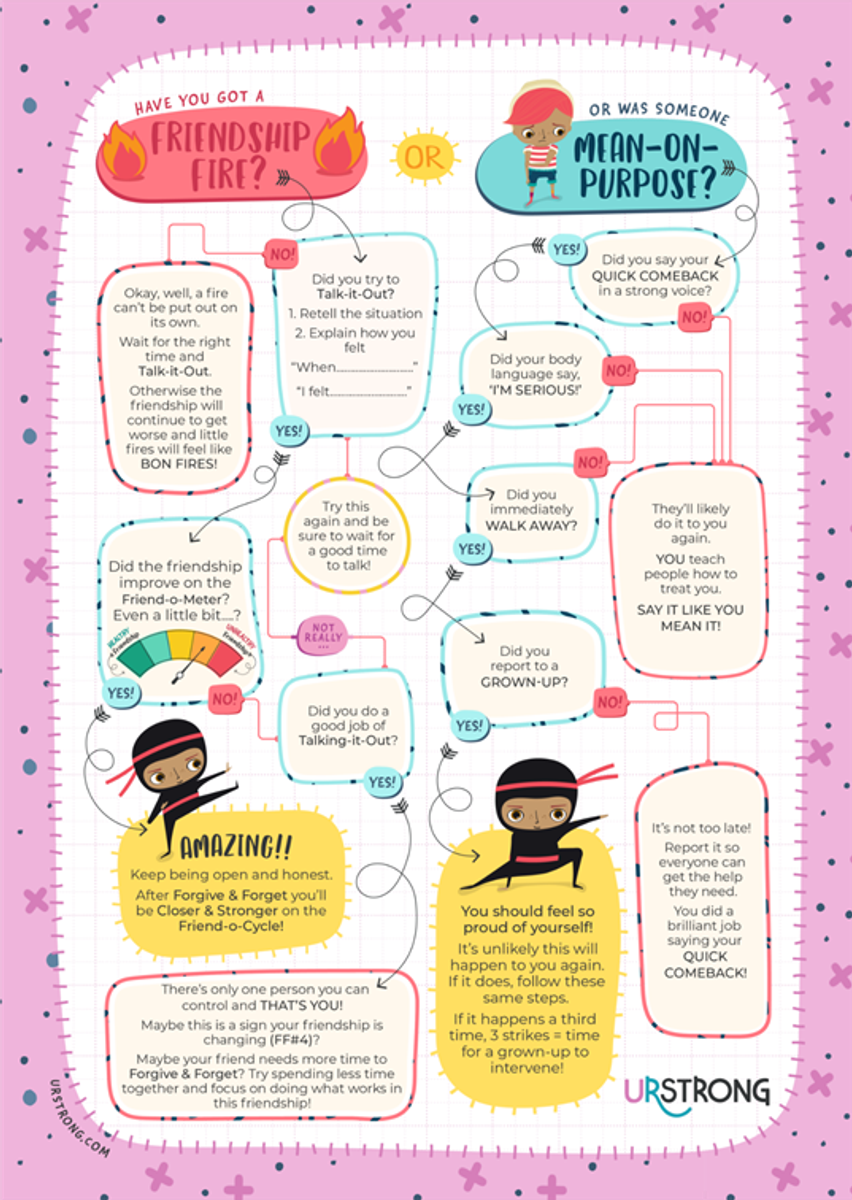And now a word from
Mrs Richards...

And now a word from
Mrs Richards...
As part of our social and emotional learning program, our school uses the URSTRONG friendship framework to teach children how to build healthy, respectful relationships. One of the key concepts in this program is the idea of a Friendship Fire.
A Friendship Fire is a disagreement or conflict that happens between friends — it's that uncomfortable feeling when something goes wrong in a friendship. It might involve unkind words, being left out, or feeling hurt by someone’s actions. Importantly, it’s not bullying (which is targeted and repeated); it’s a normal part of learning how to relate to others.
Examples of a Friendship Fire:


A friend tells a secret you asked them to keep.
Someone doesn’t let you join in a game.
A friend says something that makes you feel embarrassed or left out.
Two friends have different opinions and it leads to an argument.
At school, we help children understand that having a Friendship Fire doesn’t mean the friendship is over — it’s a chance to learn, grow, and repair the relationship.
Through URSTRONG, students are taught a simple 3-step strategy to resolve a Friendship Fire:
Calm Down – Take deep breaths, walk away, or count to 10 to calm your emotions.
Talk it Out – Use kind, honest words to share how they feel. For example:"When you didn’t invite me to play, I felt left out. Can we talk about it?"
Make a Plan – Decide together how to move forward. This might include an apology, agreeing to be more inclusive, or setting boundaries.
Children are encouraged to be kind and brave – kind in their words, and brave in facing uncomfortable conversations.
You play a crucial role in helping your child navigate friendship ups and downs. Here are some ways you can support the Friendship Fire process at home:
Listen First – When your child tells you about a friendship issue, listen without judgment or immediately solving the problem.
Validate Their Feelings – Acknowledge how they’re feeling:“It sounds like that really hurt your feelings.”
Ask Questions – Gently guide them to reflect:“What do you think caused the fire?”“Have you tried talking to your friend about how you feel?”
Practice Role-Playing – Help your child practise what they might say to their friend in a calm and respectful way.
Encourage Resolution, Not Blame – Focus on solutions, not punishment:“How can you put this fire out in a way that keeps your friendship strong?”
By using consistent language at home and school, we can empower children to become more confident, caring and capable in managing their friendships.

